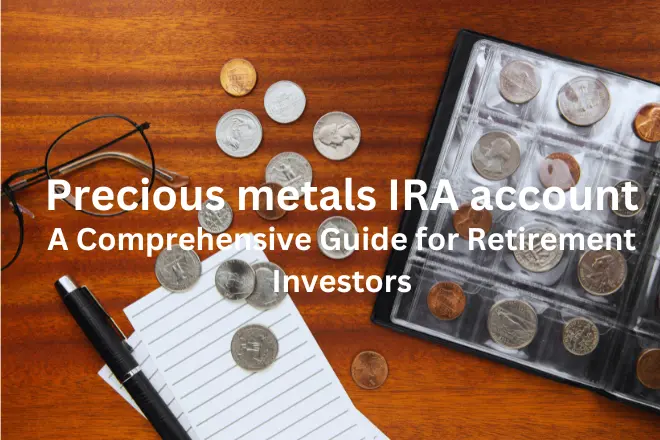Gold Storage Laws and Regulations, How to Safely Store Your Precious Metals

In the world of investments, gold has always held a special place as a reliable and tangible asset. However, storing gold is not just about finding a safe spot, it also involves understanding the gold storage laws and regulations that govern how and where you can store your precious metals. In the first line of this discussion, it is essential to recognize that the legalities surrounding gold storage are crucial for protecting your investment and ensuring compliance with national and international laws.
In this article, we will explore the key laws and regulations related to gold storage, how they affect individuals and businesses, and what you need to know before storing gold in different locations.
Why Gold Storage Laws Matter
Gold is not only valuable, but it is also portable and easily traded. Because of its inherent value, various governments regulate the storage, sale, and transportation of gold to prevent illegal activities, such as money laundering, smuggling, and tax evasion. Gold storage laws are designed to protect investors, maintain financial transparency, and ensure that gold reserves are handled appropriately.
For individuals and businesses alike, understanding these laws helps avoid potential legal issues and penalties. In some cases, failure to comply with gold storage regulations can lead to fines, asset seizures, or other legal consequences.
Gold Storage Laws and regulations in the United States
In the United States, gold ownership and storage are generally legal, but there are some important regulations to be aware of. The U.S. government has a long history of regulating gold, dating back to the Gold Reserve Act of 1934, which made private gold ownership illegal for a time. However, this restriction was lifted in 1974, and today, individuals and businesses are free to own and store gold, with some limitations.
IRS Reporting Requirements
One of the most important regulations to be aware of when storing gold in the U.S. is the Internal Revenue Service (IRS) reporting requirements. The IRS views gold as a form of capital asset, meaning that any profits made from selling gold are subject to capital gains taxes.
Key Points
- Sales Reporting: If you sell gold for a profit, you must report the sale to the IRS, and you may owe capital gains taxes.
- IRA Storage: If you’re holding gold in a self-directed Individual Retirement Account (IRA), the gold must be stored in an IRS-approved depository. This is to ensure the security of the assets and maintain tax compliance.
- Form 1099-B: In some cases, dealers must report large gold transactions using Form 1099-B. This applies if you’re selling gold bars or coins that meet specific weight and purity thresholds.
Anti-Money Laundering (AML) Regulations
To combat money laundering and other financial crimes, the U.S. government enforces strict reporting and documentation requirements for gold transactions. If you’re storing large amounts of gold, particularly in high-value vaults or depositories, the institution may be required to report suspicious activities to the Financial Crimes Enforcement Network (FinCEN).
Key Points
- Know Your Customer (KYC): Vaults and storage facilities often have to follow KYC rules, requiring them to verify your identity and the origin of your gold.
- Large Cash Transactions: If you’re purchasing or selling gold in large amounts, the transaction may trigger AML reporting, especially if cash is involved.
International Gold Storage Regulations
When it comes to storing gold internationally, the laws can vary significantly from country to country. Some countries have liberal regulations that allow for easy storage and transportation of gold, while others impose strict controls.
Switzerland
Switzerland is one of the most popular countries for gold storage due to its stable political environment, strong privacy laws, and secure vaulting infrastructure. Swiss law allows for private ownership and storage of gold, with relatively few restrictions. However, some international reporting requirements, such as the Foreign Account Tax Compliance Act (FATCA), may still apply for U.S. citizens.
Key Points
- Privacy: Switzerland is known for its strong privacy protections, making it a popular destination for individuals seeking discreet gold storage.
- Tax Reporting: U.S. citizens storing gold in Swiss vaults may need to report their holdings to the IRS, depending on the value of the assets.
Singapore
Singapore has become a major hub for gold storage due to its favorable tax environment and strong regulatory framework. In Singapore, there are no capital gains taxes on gold sales, making it an attractive option for investors. Additionally, the country’s high-security vaults provide peace of mind for those looking to store significant amounts of gold.
Key Points
- No Capital Gains Tax: Investors can store gold in Singapore without worrying about capital gains taxes when they sell their assets.
- Customs Requirements: While there are no restrictions on gold storage, any large shipments of gold entering the country may need to go through customs, and import duties could apply.
United Arab Emirates (UAE)
The UAE, particularly Dubai, is another major player in the global gold market. Dubai has established itself as a center for gold trading, and the region’s gold storage laws are generally favorable for investors. There are no taxes on gold ownership or sales, and the city is home to numerous secure vaulting facilities.
Key Points
- Tax-Free: There are no taxes on gold transactions, making the UAE an appealing destination for gold storage.
- Customs Reporting: Large shipments of gold may require customs reporting, especially if transported across borders.
Gold Storage Facilities and Legal Compliance
Choosing a reputable gold storage facility is critical for complying with the relevant laws and regulations. When selecting a storage option, it’s essential to verify that the facility adheres to legal requirements, such as reporting suspicious activities and maintaining security standards.
1. IRS-Approved Depositories (For IRAs)
If you’re storing gold in an IRA, the IRS mandates that the gold must be held in an approved depository. These depositories are regulated to ensure that the gold is safely stored and properly accounted for.
2. Vaults and Private Depositories
Vaults and private depositories are subject to both national and international regulations. Before choosing a vault, ensure that it meets the necessary compliance requirements, such as AML and KYC rules. Additionally, many private vaults offer insurance, which may be a legal requirement depending on the country.
Legal Concerns for Home Gold Storage
Storing gold at home is legal in many countries, but it comes with its own set of risks and potential legal complications. For example, if your gold is stolen or damaged in a disaster, you may face difficulties with insurance claims, especially if you haven’t properly documented your holdings.
In the U.S., home storage of gold is legal, but you need to ensure that you’re properly insured and that you comply with any tax reporting requirements. Additionally, storing large amounts of gold at home can make you a target for theft, so it’s critical to have a secure safe or other protection measures in place.
FAQs
Is it legal to store gold at home?
Yes, it is legal to store gold at home in most countries, including the U.S. However, it’s important to take security precautions and ensure that your gold is properly insured.
What are IRS requirements for gold storage in an IRA?
The IRS requires that gold stored in a self-directed IRA must be held in an approved depository. This ensures that the gold is secure and that the investment complies with tax regulations.
Do I need to report gold stored in an international vault?
If you’re a U.S. citizen, you may need to report your gold holdings in an international vault, especially if the value exceeds specific thresholds. FATCA and FBAR regulations often apply in these cases.
Can I insure gold stored at home?
Yes, you can insure gold stored at home, but you may need a special insurance policy that covers high-value assets. Check with your insurance provider to ensure proper coverage.
Are there taxes on selling gold?
In the U.S., profits from selling gold are subject to capital gains taxes. Other countries, like Singapore and the UAE, may have different tax rules, including no taxes on gold sales. Always check the specific regulations for your location.
Conclusion
Understanding gold storage laws and regulations is vital for anyone looking to invest in or store gold. Whether you’re storing gold in the U.S. or internationally, complying with reporting requirements, tax laws, and security regulations ensures that your investment is protected and that you remain on the right side of the law.
By choosing reputable storage facilities, maintaining proper documentation, and staying aware of the legal landscape, you can securely store your gold without running into legal issues. Whether you’re storing gold at home, in a bank, or in an international vault, following the law is key to safeguarding your assets.






